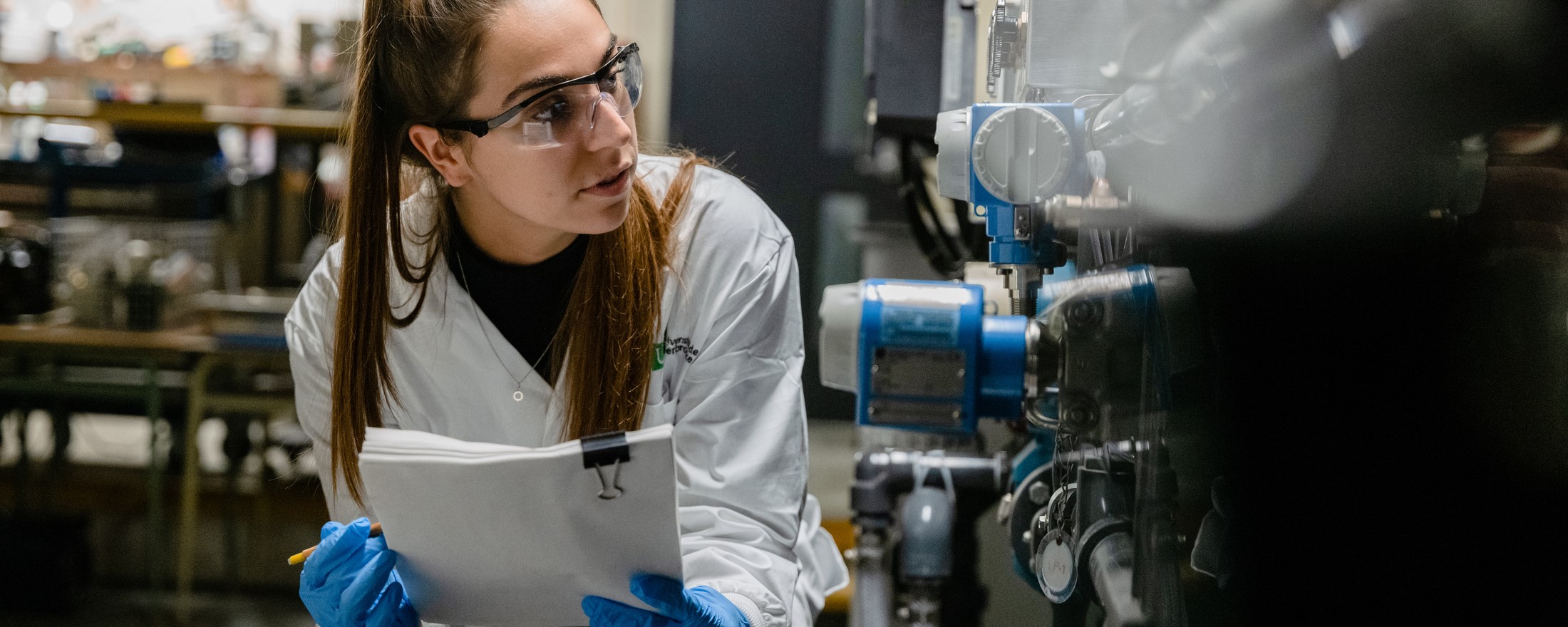Isolation and characterization of new bacteriophages from environmental samples
Overview
- RESEARCH DIRECTION
- Ilaria Rubino, Professeure - Department of Chemical and Biotechnological Engineering
- ADMINISTRATIVE UNIT(S)
-
Faculté de génie
Département de génie chimique et de génie biotechnologique
- LEVEL(S)
-
1er cycle
2e cycle - LOCATION(S)
- Campus principal
Project Description
BACKGROUND OF THE PROJECT
- This research project is part of the initiation of a program of discovery of new microorganisms in Dr. Ilaria Rubino's research group at the Faculty of Engineering of the Université de Sherbrooke.
- In particular, this project deals with the discovery of new bacteriophages ("phages" in short, i.e. viruses that infect bacteria but not humans), that have the potential of leading to the development of technologies for therapies, diagnostics and prevention of bacterial diseases.
- The project will be mainly carried out in the laboratory of Dr. Rubino as well as in the laboratories of the Department of Chemical and Biotechnological Engineering, located at the Faculty of Engineering of the Université de Sherbrooke. The project will be carried out under the supervision of Dr. Rubino.
INTRODUCTION
- Infectious diseases are a great challenge for global health and they remain among the leading causes of death. Unfortunately, the rapid rise of drug resistance hampers treatments. Among others, bacterial diseases such as pneumonia, tuberculosis, blood poisoning and foodborne diseases are becoming dangerously hard to treat. Additionally, pandemic and epidemic outbreaks call for innovative strategies to develop technologies for prevention, control and diagnostics.
- Bacteriophages (phages)—bacteria-infecting viruses—have recently re-emerged as an appealing approach to bacteria control. Additionally, genetic engineering is a potential strategy to rapidly tailor phage properties for new technologies.
- By combining phages with appropriately designed materials and genetic modifications, our research aims to use engineered phages in treatments and diagnostic devices against bacterial diseases. In order to develop these technologies, it is of primary importance to establish a phage isolation and characterization program to expand the repertoire of available candidates.
OBJECTIVES
The overall objective of the project is the isolation and characterization of new phages from environmental samples. In particular, in order to discover phages, the project will include:
1) Collecting environmental samples (from soil, lakes, rivers, etc.)
2) Culturing of the targeted bacteria
3) Isolation and purification of phages contained in the environmental samples
4) Phage amplification
5) DNA extraction from the phages for sequencing
6) Characterization of the phage virulence against an array of bacteria
7) Visualization of the phages by scanning electron microscopy (SEM)
8) Naming and archiving the new phages
9) Analysis, interpretation and summary of the results.
PROFILE OF THE CANDIDATE
Introductory knowledge on the following topics would be an asset, but not a requirement:
- Microbiology: bacteria cultures, phages
- Molecular biology: isolation, digestion and sequencing of DNA
- Preparation of SEM samples and image analysis
This project can accommodate a student or students in the following programs:
- 2nd cycle research internship
- Undergraduate research internship
- College-level research internship
Discipline(s) by sector
Sciences de la santé
Biologie moléculaire, Microbiologie, Virologie
Sciences naturelles et génie
Biologie et autres sciences connexes, Génie biomédical et génie biochimique, Génie chimique
Funding offered
To be discussed
The last update was on 12 March 2024. The University reserves the right to modify its projects without notice.
